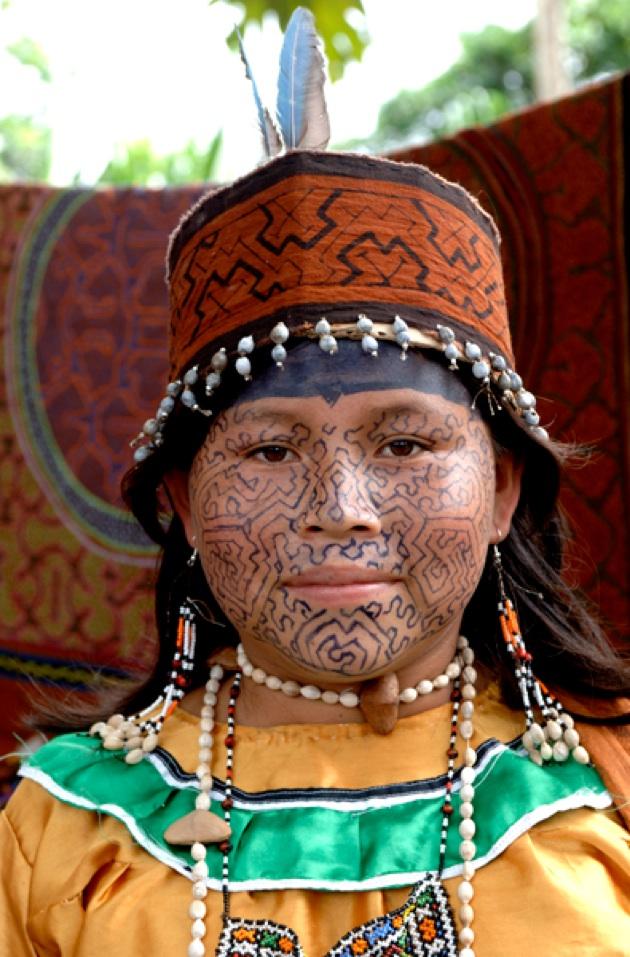
The Shipibo are a tribe that live in the Peruvian Amazon in the Pucallpa / Ucayali River region. They are masters of Ayahuasca, a medicinal tea made from the vines and leaves of jungle plants. The tea has spiritual properties to heal illnesses and induce visions and revelations. Shipibo women translate the patterns, visions, and songs they experience into hand painted or embroidered textiles, pottery and jewelry.
Shipibo designs represent sacred spiritual patterns which permeate creation, perhaps energy patterns. The designs accompany songs or are songs. During an Ayahuasca ceremony, a shaman, or Indian doctor will see patterns which he or she will sing. The song repairs the patterns in the patients body. The patterns of the doctor, the patient, and the environment all inter-relate with song. The shaman sees when the geometric healing design is clearly distinct. The result is a permanent rebalancing of the internal patterning of the patients body. Patients relate experiencing profound positive changes in their lives afterward.
Shipibo designs are something like a codified musical language, integrating the inner and outer spiritual worlds. After a ceremony, the women embroider and paint the patterns onto fabric. They have been trained from childhood to do this. Smaller motifs all have meanings such as a thinking man, soul of a child, star of the south, leaf of a medicinal plant, a stream of rain, or the southern cross constellation which divides the cosmos into four quadrants. The entire textile represents the great mother, the creator/creation. Traditionally in Shipibo villages everything was painted with designs - houses, furniture, pottery, tools, clothing, jewelry, bodies.
The designs are healing designs Each textile is handmade, and individual and unique.